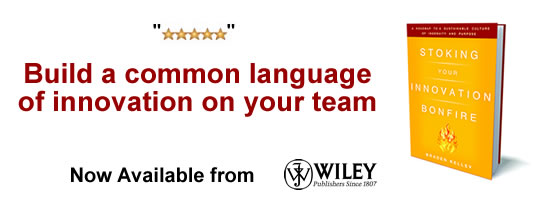Can Small Business Access World Class Scientific Research? Yes!

Take a look at any breakthrough technology and invariably it started out in a lab somewhere, usually decades before any commercial product hits the market. The problem is that, with tens of thousands of scientific papers published every year, it’s hard to separate the wheat from the chaff.
That’s why major corporations spend billions on research and development, invest in academic partnerships at top research universities and send their scientists and engineers to conferences around the world. Everybody’s looking for that one obscure discovery that can lead to a hit product that can win in the marketplace.
Yet what few realize is that small and medium sized businesses can play this game too. Researchers want their discoveries to find useful applications, federally funded science is generally published openly, and there are a number of programs that are designed to help entrepreneurs navigate the scientific world. They key is to show a real interest and engage.
Tapping into Local Universities
Wherever your business is located, chances are you are less than an hour’s drive from a university where significant research is taking place in a wide variety of technical areas such as chemistry, engineering and computer science. These can be invaluable resources for plugging into the scientific community.
What’s more, small firms have a lot to offer academic researchers, who are always looking for fruitful areas to study, interesting problems to work on and insights about practical applications that can’t be gleaned from a scientific journal. Some companies, like Elsevier, offer small prizes, usually just a few thousand dollars, for scientific achievement.
Jeff Welser, Vice President and Lab Director at IBM’s Almaden Research Center advises smaller firms to “look to cultivate relationships with a couple of professors. I would also think seriously about geography and build up relationships with universities in your area that you can drop in on and interact with.â€
So the first step to gaining access is to actively engage with scientists whose work may apply to your business. They should be relatively knowledgeable about not only their own work, but how the field is advancing and what developments you should be looking for. From there, you can begin to unlock even greater resources.
Accessing Federal Government Programs
In addition to local universities, there are a number of programs funded by the federal government that can help you navigate the scientific world. One great place to start is the Hollings Manufacturing Extension Partnership, which is a public-private partnership that can help you to connect to resources inside and outside the federal government.
For example, over the past several years the US government has set up 14 manufacturing hubs in areas like additive manufacturing, advanced fabrics and electronics, which offer affordable affiliate memberships for small and medium sized business. While becoming an affiliate doesn’t give you all the benefits of full membership, you do get access to informational resources, are able to attend conferences and discuss problems with researchers and other manufacturers.
There are also a number of programs, such as the National Robotics Initiative, Nanotechnology Initiative and Materials Genome Initiative, that the MEP can help you navigate. These are multi-agency efforts whose mission is to accelerate development in specific areas of national interest and can be an incredible resource for any company.
All of this can be somewhat intimidating for a small company, but as Carroll Thomas, Director at MEP, told me, “We’re here to help. You don’t need a billion dollar valuation to get access to cutting edge scientific knowledge. When you come to us with a problem that your business needs to solve, we will connect you to the resources you need to help you compete.â€
Collaborating With The National Labs
Another vastly underutilized resource is the national labs, which are some of the most prestigious scientific institutions in the world. Here again, despite the impressive credentials, the labs are open to you as a resource and, in fact, have developed a number of programs to help you access them more easily.
For example, Argonne National Laboratory has developed three programs specifically to engage with the private sector. The ACCESS program is focused specifically on next generation batteries, Nano Design Works offers a more wide ranging set of services and Chain Reaction helps to incubate new technologies for the marketplace.
Andreas Roelofs, who heads up many of these efforts at Argonne, stressed to me that they are eager to hear from you. “If you want to improve your business by creating better materials, more efficient chemical processes, more advanced electronics or whatever, chances are we can help or at least point you in the right direction. Even more importantly, we want our work to be useful and to make an impact,†he told me.
We’re Entering A New Era of Innovation
When most people look at an iPhone they see the ingenuity of Steve Jobs and his team at Apple, but that’s not the whole story. Every component of today’s smartphones, from the architecture, to the lithium-ion battery to the Internet, started out as academic research, for the most part funded by the federal government.
Today, we are on the brink of a new era of innovation in which completely new fields, such as genomics, nanotechnology and robotics will completely reshape what we once thought was possible and create amazing opportunities. The next big thing is most probably sitting in a lab waiting for someone to notice it.
Big companies can afford to invest billions to unlock these opportunities, but smaller firms have to engage. Talk to researchers at a local university, contact the Manufacturers Extension Partnership or Nano Design Works at Argonne National laboratory, They are, quite literally, waiting for your call and more than willing to help.
But it’s important to realize is that there is no industry hotline for scientists to call when they make a discovery that can reshape your business or your industry. You have to take the initiative.
Wait! Before you go…
Choose how you want the latest innovation content delivered to you:
- Daily — RSS Feed — Email — Twitter — Facebook — Linkedin Today
- Weekly — Email Newsletter — Free Magazine — Linkedin Group
 Greg Satell is a popular speaker and consultant. His first book, Mapping Innovation: A Playbook for Navigating a Disruptive Age, was selected as one of the best business books in 2017. Follow his blog at Digital Tonto or on Twitter @Digital Tonto.
Greg Satell is a popular speaker and consultant. His first book, Mapping Innovation: A Playbook for Navigating a Disruptive Age, was selected as one of the best business books in 2017. Follow his blog at Digital Tonto or on Twitter @Digital Tonto.
NEVER MISS ANOTHER NEWSLETTER!
LATEST BLOGS
How Brexit Has Affected UK E-commerce Businesses
Photo by Zyro on Unsplash The popularity of online shopping was already growing at an impressive rate – and…
Read MoreOvercoming range anxiety: three tips for EV owners
Photo by Jenny Ueberberg on Unsplash In the last few years, electric vehicles (EVs) have become more and more…
Read More


